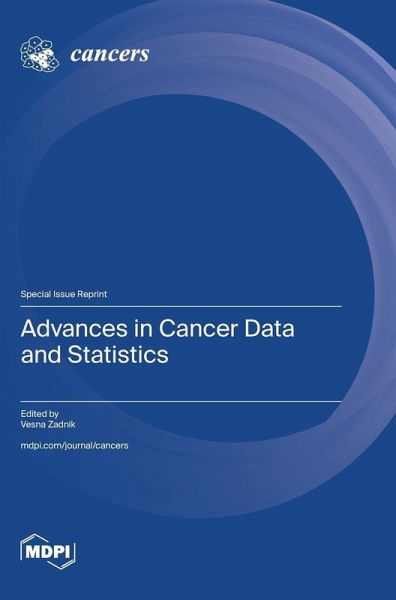
Advances in Cancer Data and Statistics
Versandkostenfrei!
Versandfertig in 1-2 Wochen
74,99 €
inkl. MwSt.

PAYBACK Punkte
37 °P sammeln!
Cancer registries-both population- and hospital-based-collect data on cancer patients, including diagnoses, treatments, and outcomes. These data serve not only to track the cancer burden and trends but also to evaluate the effectiveness of cancer control efforts. Beyond their traditional uses, registry data are increasingly being applied in cancer epidemiology, public health, healthcare research, and clinical practice. This broader application is driving improvements in data infrastructure, statistical methodologies, and analytical approaches. Expanding the linkages between cancer registries a...
Cancer registries-both population- and hospital-based-collect data on cancer patients, including diagnoses, treatments, and outcomes. These data serve not only to track the cancer burden and trends but also to evaluate the effectiveness of cancer control efforts. Beyond their traditional uses, registry data are increasingly being applied in cancer epidemiology, public health, healthcare research, and clinical practice. This broader application is driving improvements in data infrastructure, statistical methodologies, and analytical approaches. Expanding the linkages between cancer registries and non-health databases will present new opportunities to explore the risk and prognostic factors influencing cancer outcomes. This Special Issue highlights the current progress and emerging trends in cancer epidemiology, emphasizing innovative uses of cancer registry data as well as the development of new epidemiological and statistical approaches.












